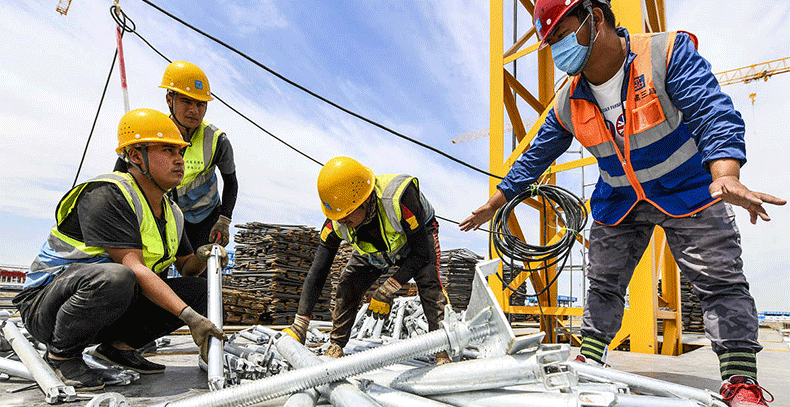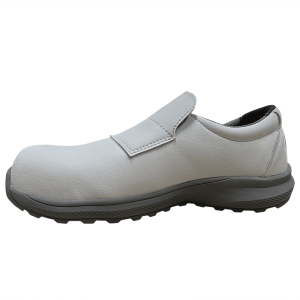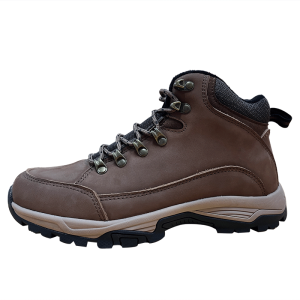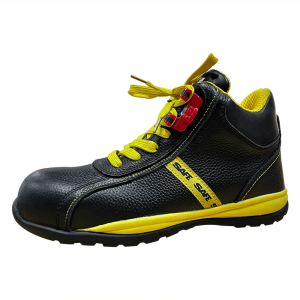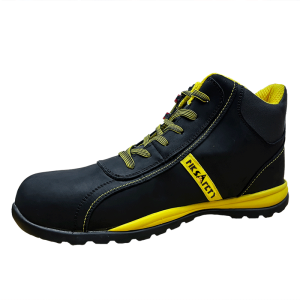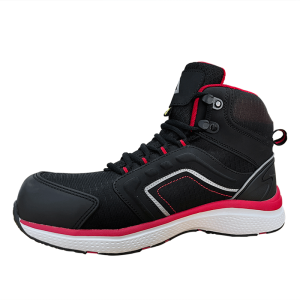Non-metallic safety shoes refer to safety shoes that use non-metallic materials instead of traditional metal materials in key areas such as the toe, insole, and outsole. These non-metallic materials, including composite materials, fiber materials, and plastic materials, offer lightweight, comfort, and safety protection.
Non-metallic safety shoes have become a popular choice in industries such as industrial, construction, and transportation with high-risk working environments. This article will provide a detailed introduction to the definition, advantages, and application areas of non-metallic safety shoes.
Firstly, let’s understand the definition of non-metallic safety shoes.
Non-metallic safety shoes are specially designed safety shoes that use non-metallic materials to replace traditional metal materials in key areas such as the toe, insole, and outsole.
Non-metallic materials are usually lightweight, flexible, wear-resistant, and insulating, providing better wearing experience and safety protection for workers.
Next, let’s look at the advantages of non-metallic safety shoes.
- Firstly, non-metallic safety shoes are lighter compared to traditional metal safety shoes.
The use of non-metallic materials reduces the overall weight of the shoes, making them less heavy and more comfortable for workers to wear for extended periods of time.
- Secondly, non-metallic safety shoes are more flexible.
Non-metallic materials are usfoot and provide better comfort and flexibility.
- Thirdly, non-metallic safety shoes are ually more flexible than metal, allowing them to better adapt to the shape of the more wear-resistant.
Non-metallic materials have higher wear resistance, enabling them to maintain longer service life in harsh working environments, reducing the economic burden on workers.
Finally, non-metallic safety shoes have insulation properties.
Non-metallic materials generally have good insulation properties, effectively isolating external factors such as cold, heat, and electric current, providing better safety protection.
Non-metallic safety shoes are suitable for various industries and workplaces.
- Firstly, they are suitable for workplaces that require frequent walking and long periods of standing, such as logistics, warehousing, and supermarkets.
- Secondly, they are suitable for workplaces that require slip resistance and wear resistance, such as factories, workshops, and construction sites.
They offer advantages such as lightweight, flexibility, wear resistance, and insulation. Non-metallic safety shoes have become the preferred choice for workers in various high-risk working environments.
They are suitable for multiple industries and workplaces, providing workers with a better wearing experience and safety protection. The development and application of non-metallic safety shoes will further promote work safety and labor protection. They not only improve the comfort and wearing experience of workers but also effectively reduce workplace accidents.
First of all, the lightweight nature of metal-free safety shoes is one of their biggest advantages.
Compared with traditional metal safety shoes, metal-free safety shoes are made of lightweight materials and have an overall lighter weight. This prevents workers from feeling too heavy and uncomfortable when worn for a long time, reducing the burden on the feet and improving work efficiency.
Secondly, the softness of metal-free safety shoes makes them more ergonomic.
Metal-free materials are generally more flexible than metal and can better adapt to the shape of the foot, providing better comfort and flexibility. Not only does this reduce the risk of wear and foot fatigue, it also reduces discomfort and friction, providing a better working experience.
Third, metal-free safety shoes have excellent wear resistance.
Metal-free materials generally have high wear resistance and can maintain a long service life in harsh working environments. This means that staff do not need to change shoes frequently, reducing financial burden and time costs.
Finally, metal-free safety shoes have good insulating properties.
Metal-free materials usually have good insulation properties and can effectively isolate heat, cold, current and other external factors. This is particularly important for workers in special workplaces such as electronics factories, chemical plants and hospitals, providing better safety protection.
In addition to the above advantages, metal-free safety shoes also have some other features worth noting.
For example, they do not generate metal detector alarms and are therefore suitable for places where passing through metal detectors is required, such as airports and public places. In addition, the use of metal-free safety shoes is also in line with the concept of environmental protection, because they do not contain metal materials that are harmful to the environment.
Metal-free safety shoes have many advantages such as lightness, softness, wear resistance and insulation. They not only improve the comfort and wearing experience of workers, but also effectively reduce the incidence of workplace accidents.
With the continuous development of technology and materials, the performance and application of metal-free safety shoes will be further improved, making greater contributions to work safety and labor protection. When choosing safety shoes, workers should choose suitable metal-free safety shoes based on their own working environment and needs to ensure their own safety and health.




